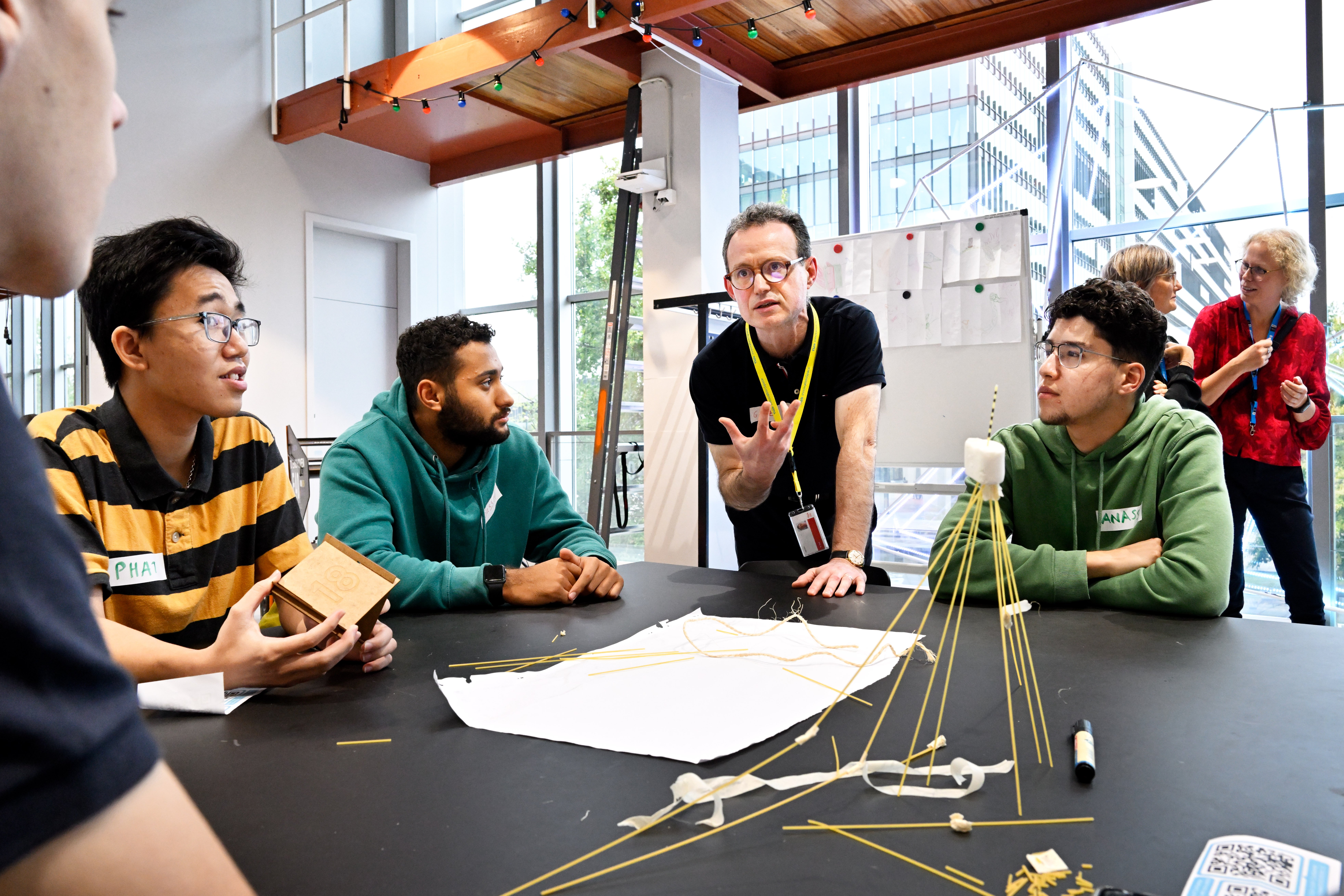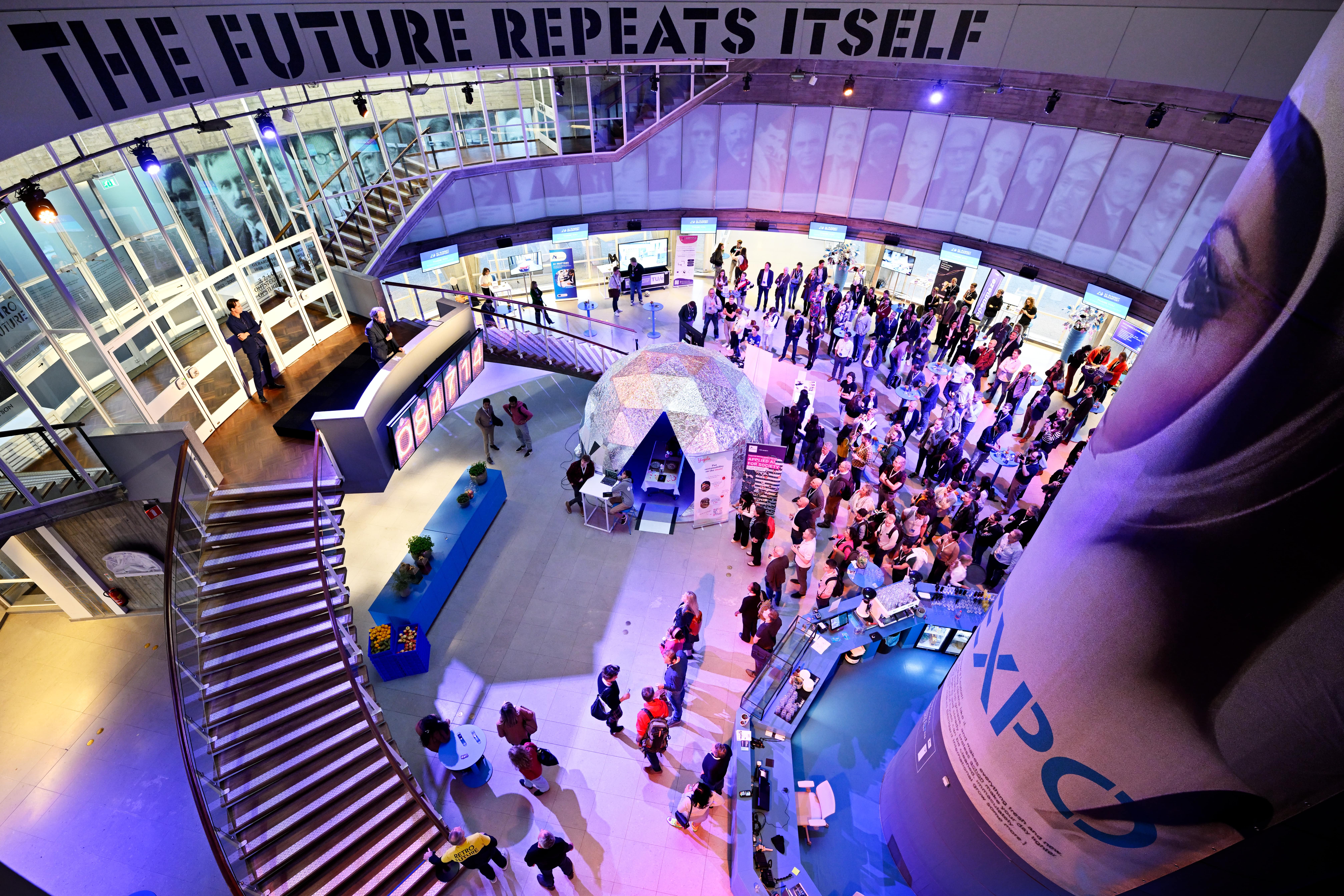
For the third year in a row, students of the Eindhoven University of Technology are organising the SensUs student competition. The competition aims to promote education and innovation in the area of biosensors. Thirteen teams from all over the world will compete for the first place this weekend.
The team behind SensUs, a student organisation of the TU/e, consists of about twenty students from different studies. Together they organise an international student competition to stimulate education and innovation in the field of biosensors. “We want to connect students with companies, medical specialists and startups. In this way they can learn from each other, new ideas can arise, and they can collaborate,” says Luuk Kemna, co-organiser of the event.
“Every year we choose a theme with a corresponding biomarker, a measurable substance in the body. Based on the theme, we challenge international student teams to develop a biosensor for it.” Kemna continues. Previous years, biosensors for creatinine and NT-proBNP were developed.
Kemna: “This year, thirteen teams from China, America, Canada, Germany, Egypt and other countries are competing in the event. Each team consists of about six to fourteen students and has had nine months to develop their biosensor. In September they will all come here to present their findings and prototypes to the jury, companies, patients and medical specialists.”
Vancomycin
This time SensUs focuses on the antibiotic vancomycin, a drug that is only used by patients who are already resistant to all other forms of antibiotics. The teams have been instructed to develop a compact biosensor that can calculate the required dose of vancomycin with the help of a blood sample.
Because of the need for a laboratory, the current technique to do this is both time-consuming and expensive. It often takes one or two days before the results are known. The danger that comes with this is that the test results are already outdated and that the patient cannot be provided with an accurate dose. A too high dose of the drug causes kidney failure and eye problems, while a too low dose is not effective and can even cause vancomycin resistance.
According to Menno Prins, TU/e professor of molecular biosensors and founder of the competition, developing such a biosensor is not an easy task: “You need a technique that is fast, accurate, reliable, easy to use in practice and cost-effective to make. He sees that student teams in particular come up with very creative ideas. “They think in a multidisciplinary way and bring together the elements you need to create a successful prototype like no other.
Awards
During the competition, four prizes will be awarded. For the Analytical Performance Award the accuracy of the sensors, among other things, is examined. The Translational Potential Award is presented to the concept that is considered to have the greatest chance of actually entering the world market. The Creativity Award is presented to teams that have come up with something really unique, and there is also a public prize; the Public Inspiration Award.
A new element is the entrepreneurship training that will be offered. Companies and professors from the University of Technology will help to establish a business plan and help to conduct market research. There will also be assistance in planning the subsequent steps to develop the biosensors further.
SensUs can be visited on Friday 7 and Saturday 8 September in the Auditorium of the Technical University in Eindhoven. The event can also be followed live via an online platform.







